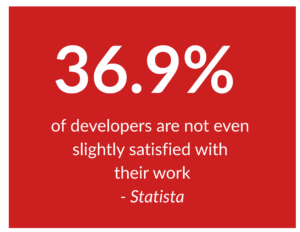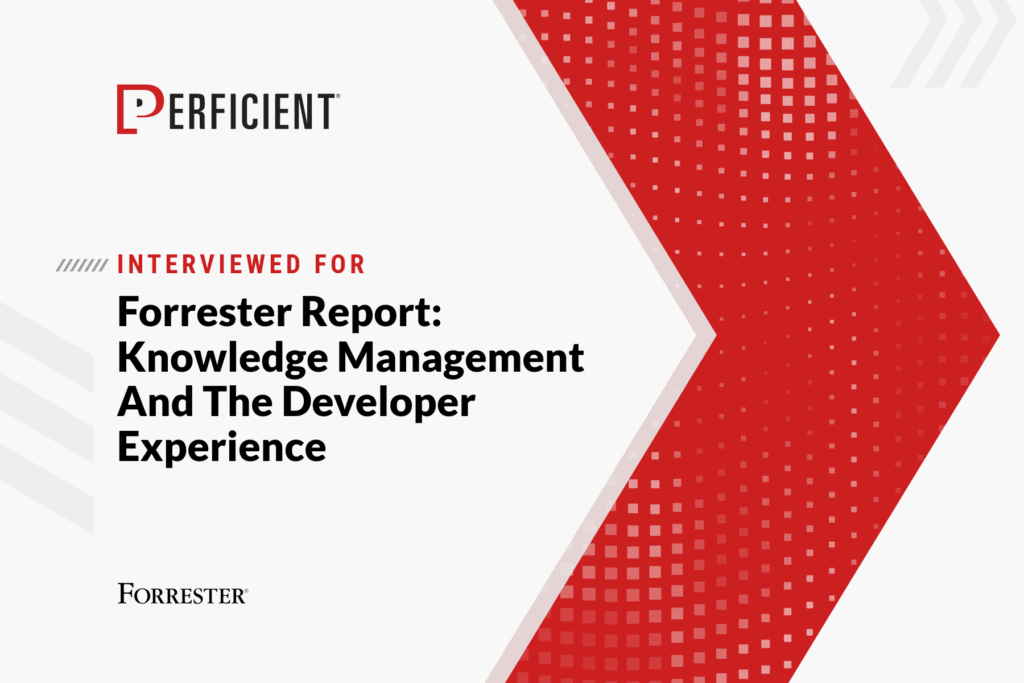When we talk about developer experience, we often leap straight to the exciting stuff like cutting-edge platforms, AI tools, and lightning-fast frameworks. But according to Forrester’s June 2025 report, “Knowledge Management and The Developer Experience,” “In software development, effective knowledge management (KM) is crucial for developers.” An organization’s knowledge management practices determine how well teams capture, share, and retain what they know.
We’re proud to share that several of our experts were interviewed for this Forrester research. Judah Tice, Grant Davies, and Jeff Small contributed insights on the connection between knowledge management (KM) and the developer experience (DX). We’re excited to share some compelling insights from the report and reflect on why this topic is resonating so strongly across our work with enterprise clients.

Why Knowledge Management Can Make or Break Developer Experience
According to the Forrester report, “Organizations that efficiently capture, organize, and share knowledge gain a competitive edge by fostering continuous learning and improvement.” And yet, many organizations are still struggling with the basics: developers can’t find documentation, duplicate work is common due to poor onboarding, and critical knowledge is lost when employees leave.
One stat according to recent data from Statista that stood out to us: “36.9% of developers are not even slightly satisfied with their work.”
That’s not just a morale problem; it’s a business risk.
Inside the Interview: Perficient’s Perspective
Judah Tice, director of product development consulting at Perficient, shared this reflection after contributing to the report:
“You can’t improve developer experience in isolation. It has to be part of a broader system. If developers don’t know where to look, don’t feel heard, or don’t trust the docs, it doesn’t matter how advanced your tools are. Knowledge is the glue that holds it all together.” —Judah Tice, Practice Director, Product Development, Perficient
Tice’s take echoes a broader trend in the research: organizations are starting to treat DX as an enterprise capability, not just a developer concern. That means investing in culture, documentation, and knowledge-sharing practices with the same weight as you’d treat your architecture or tooling decisions.
What This Means for Your Organization
Whether you’re onboarding new devs, trying to avoid “reinventing the wheel,” or looking to preserve institutional knowledge before your tenured engineers retire, investing in a robust KM strategy pays dividends. It creates continuity, improves speed, and, most importantly, helps your developers feel supported and empowered to do their best work.
Forrester’s full report outlines best practices, technical recommendations, and strategic frameworks for building a strong knowledge management foundation within engineering teams. If you’re responsible for developer experience at your organization, it’s worth a read.
Read the full report here (Forrester login required)
Keep the Conversation Going
Want to explore how we help enterprise organizations improve developer productivity and long-term engineering health? Contact us to learn more about our digital strategy, platform, and developer experience services.
Source: Read MoreÂ
